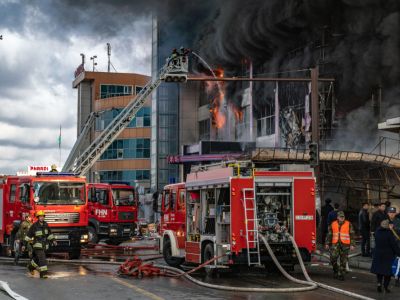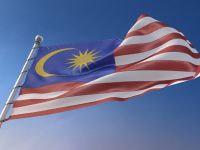Western embassies in Islamabad on Wednesday began moving the families of diplomats and some non-essential staff out of Pakistan, fearing unrest if there is any US military action against Afghanistan.
But diplomats stressed that there was no emergency evacuation under way.
US ambassador Wendy Chamberlin said non-essential staff at the US embassy had been told they could leave if they wanted to earlier this week but no evacuation order had been issued.
"We are quite satisfied with the security we are getting from Pakistan," she told reporters.
The British High Commission in Islamabad issued a statement advising nationals that "in light of the security situation" they should consider whether to leave the country.
It said anybody in the North West Frontier Province (NWFP), Baluchistan and northern parts of the country -- all areas close to Afghanistan -- would be "strongly advised" to leave immediately.
"British nationals will also want to be aware that the dependents of staff at our offices here and a few non-essential personnel who wish to leave will be leaving Pakistan," a spokesman said.
Other European Union countries, Australia and Canada have adopted a similar approach.
Australia said that all its nationals in Pakistan should consider leaving. Previously it had advised only Australians in NWFP and Baluchistan to leave those areas.
"For embassy staff that means that some non-essential staff and dependents are leaving," a spokesman said.
Diplomats stressed however that the departures were precautionary rather than a sign of sign of panic. The British High Commission has chartered a special flight to take some staff out of Pakistan but it is not due to leave until Friday, a diplomatic source told AFP.
"The embassies are thinning their staff out now when it is not too bad so that it is easier if we have to evacuate later," another Western diplomat said.
A European diplomat said there was however growing unease within the diplomatic community about the prospects of demonstrations against Pakistan's support for possible US action turning violent.
"There is a feeling lots of people want to leave, especially those who have children. In most cases, wives who do not have children are staying."
The British school in Islamabad has already closed but the French and American schools were still open Wednesday.
Japan said it had advised its nationals to leave Pakistan and said 353 of 465 Japanese there had already left. South Korea said 108 of its 419 citizens in Pakistan had already left and the embassy was mapping out an emergency evacuation plan in case of a serious deterioration in the situation.
Thailand however said it was not moving its nationals out of Islamabad but said it had advised against non-essential travel there. Malaysia said it was monitoring the situation but had not issued any instructions yet.
The acceleration of departures from Pakistan came a day after 5,000 people staged an anti-American demonstration in Karachi. It was the biggest since the start of the current crisis and police had to be deployed to stop the protestors marching on the US consulate in the city.
The demonstrations so far have been peaceful but sources in the intelligence community believe it is inevitable that hardline religious groups will resort to violence in their campaign against Pakistan's support for the United States.
A coalition of more than 30 Islamist parties has called for a nationwide wave of strikes and protests starting after prayers on Friday, the Muslim holy day. A council of senior religious leaders called Wednesday for a jihad, or holy war, if the US attacks Afghanistan -- ISLAMABAD (AFP)
© 2001 Al Bawaba (www.albawaba.com)









